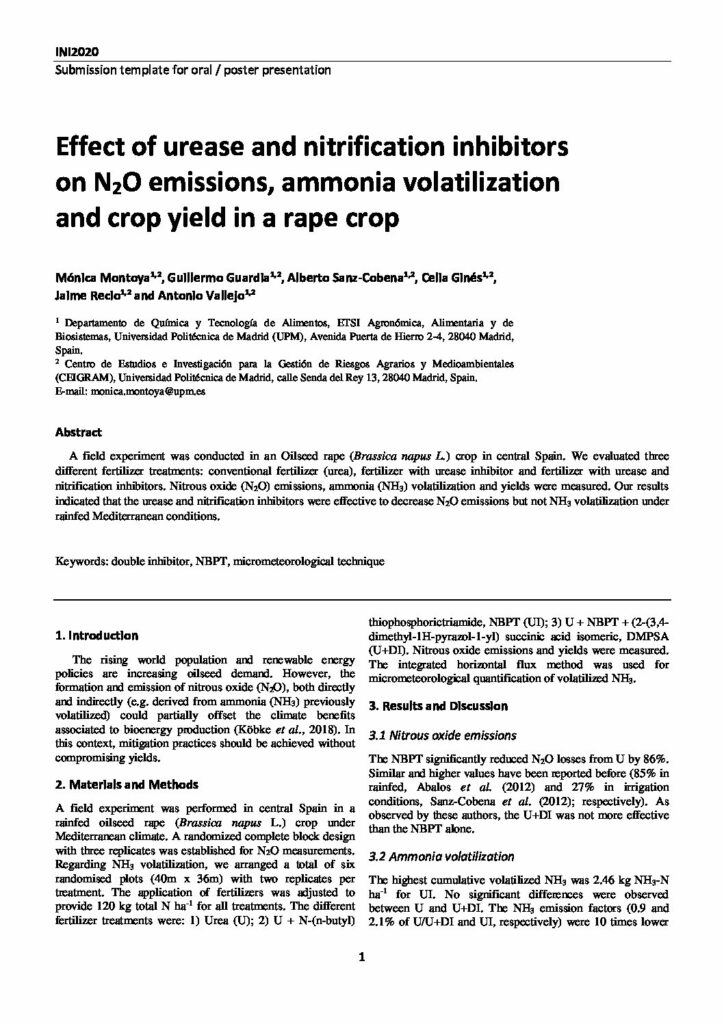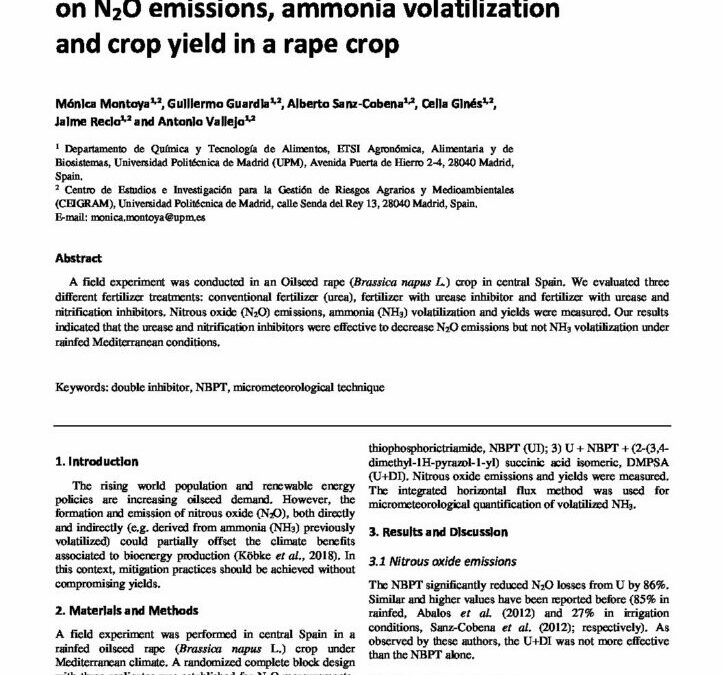Effect of urease and nitrification inhibitors on N2O emissions, ammonia volatilization and crop yield in a rape crop

A field experiment was conducted in an Oilseed rape (Brassica napus L.) crop in central Spain. We evaluated three different fertilizer treatments: conventional fertilizer (urea), fertilizer with urease inhibitor and fertilizer with urease and nitrification inhibitors. Nitrous oxide (N2O) emissions, ammonia (NH3) volatilization and yields were measured. Our results indicated that the urease and nitrification inhibitors were effective to decrease N2O emissions but not NH3 volatilization under rainfed Mediterranean conditions.
The rising world population and renewable energy policies are increasing oilseed demand. However, the formation and emission of nitrous oxide (N2O), both directly and indirectly (e.g. derived from ammonia (NH3) previously volatilized) could partially offset the climate benefits associated to bioenergy production (Köbke et al., 2018). In this context, mitigation practices should be achieved without compromising yields.
